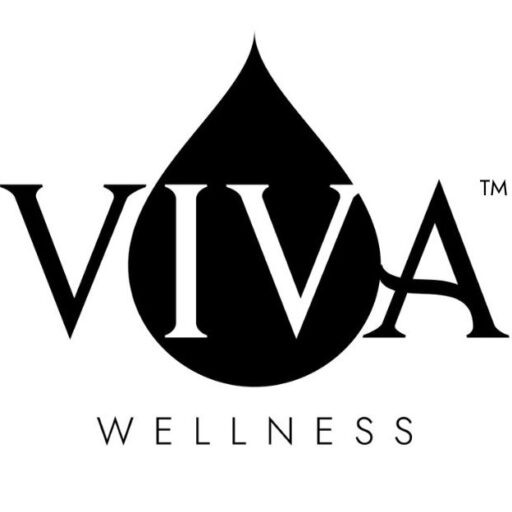Preparing for pregnancy can feel like a big step. Many people worry about how to prepare their bodies. This blog will guide you through simple steps to prepare physically, mentally, and financially for pregnancy.
Ready to start?
Key Takeaways
- Talk to a doctor for advice on preparing your body for pregnancy, including what vitamins to take and how to handle any health issues.
- Quit smoking, avoid alcohol, and stop using drugs to create a healthy environment for your baby’s development.
- Eat healthy foods like fruits, vegetables, lean proteins, and whole grains while reducing sugary snacks and high-fat foods. Drink plenty of water, too.
- Start exercising regularly with activities safe for pregnancy, such as walking or prenatal yoga, to help prepare your body for the changes it will undergo.
- Manage stress by practicing relaxation techniques like meditation or deep breathing exercises. Ensure you get enough sleep and have good support from friends or family.
Preparing Your Body for Pregnancy
Prepare your body for pregnancy by consulting with a doctor and maintaining a balanced diet. Take prenatal vitamins, exercise regularly, and focus on stress management for overall well-being.
Consult with A Doctor
Consulting with a doctor is the first step in preparing your body for pregnancy. They can offer advice on how to start preparing, including necessary lifestyle changes and health screenings.
Your doctor will discuss pre-pregnancy vitamins, such as folic acid, which are crucial for a baby’s development right from conception.
Doctors also play a crucial role in identifying and managing any underlying health issues that could affect your pregnancy. They may recommend specific tests or treatments to ensure you’re in the best possible shape before conceiving.
This initial consultation sets the foundation for a healthy pregnancy journey.
Stop Smoking, Drinking Alcohol, and Using Drug
Quitting smoking, cutting out alcohol, and avoiding drugs are crucial steps in preparing your body for pregnancy. These substances can harm your baby’s health and increase the risk of complications during pregnancy.
Smoking reduces fertility in both men and women, making it harder to conceive. Alcohol intake is linked with an increased chance of miscarriage and can affect a baby’s development in the womb.
Drugs, both prescription misuse and illicit use, can lead to birth defects, low birth weight, and other long-term health issues for the child.
Creating a healthy environment for your baby starts with you.
Make lifestyle changes that promote wellbeing to ensure the best start for your future child. This includes seeking support if you struggle with substance abuse. Health professionals provide resources and guidance to help you quit these habits safely before conceiving.
Making these changes boosts your chances of becoming pregnant and sets the stage for a healthier pregnancy journey.
Maintain a Balanced Diet
Eating various healthy foods is crucial for preparing your body for pregnancy. Include fruits, vegetables, whole grains, lean proteins, and dairy products in your meals.
This balanced diet supplies nutrients that support fertility and provide a strong foundation for your baby’s growth.
Limit intake of sugary snacks and high-fat foods to keep your weight in a healthy range. Drinking plenty of water keeps you hydrated and supports overall health during preconception.
By choosing nutritious foods now, you’re setting the stage for a healthy pregnancy journey ahead.
Take Prenatal Vitamins, Including Folic Acid
Take prenatal vitamins daily, including folic acid, to support a healthy pregnancy. These essential nutrients aid in developing a healthy baby and can reduce the risk of birth defects.
Exercise Regularly
Engage in regular exercise to prepare your body for pregnancy. Walking, swimming, or prenatal yoga can help maintain a healthy weight and improve overall fitness.
Exercise also boosts mood and energy levels, which can be beneficial during the changes when preparing for pregnancy. Regular physical activity may support fertility by helping regulate hormonal balance and improving circulation.
By incorporating exercise into your routine, you are setting the stage for a healthy pregnancy experience.
Incorporating regular physical activity into your routine is essential to preparing for pregnancy. It helps boost overall health and sets the foundation for a smoother transition into this significant phase of life.
Focus on Stress Management and Getting Enough Rest
Ensuring proper stress management and adequate rest are crucial when preparing for pregnancy. Incorporating relaxation techniques such as meditation, yoga, or deep breathing can help alleviate stress.
Engaging in regular physical activity not only promotes better sleep but also assists in reducing anxiety and tension. Additionally, establishing a consistent bedtime routine and creating a comfortable sleep environment can aid in achieving sufficient rest.
Balancing work and personal time is essential to manage stress effectively. Setting realistic expectations at work and home while learning to delegate tasks can contribute to a more relaxed mind.
Likewise, open communication with your partner about shared responsibilities will promote understanding and support, further minimizing potential stressors during this significant period of pregnancy preparation.
Preconception Counseling
Discussing family health history and addressing existing health conditions with a healthcare professional is vital before planning for pregnancy. This step can help identify potential genetic concerns and get the necessary guidance to ensure a healthy start to your journey toward parenthood.
Discuss Family Health History
When discussing family health history, it is crucial to gather information about any genetic conditions, chronic illnesses, or pregnancy complications that may run in the family. This can provide valuable insight into potential risks and help healthcare providers tailor their care accordingly.
By understanding the family’s medical background, individuals can proactively address any hereditary concerns and make informed decisions when planning for pregnancy-related matters.
Understanding family health history gives individuals essential knowledge that contributes to a comprehensive preconception plan. It enables them to anticipate potential challenges and make well-informed choices regarding their reproductive health and overall wellness.
Address any Existing Health Conditions
Ensuring that any existing health conditions are under control before pregnancy is crucial. Seeking medical advice to manage chronic illnesses or address any potential concerns will help create a healthy environment for conception and subsequent pregnancy.
Discuss your current health with a healthcare professional, as managing pre-existing conditions can significantly impact your pregnancy journey. Prioritizing proactive measures for optimal health is important before embarking on this exciting stage.
Moving forward, let’s delve into the significant aspect of preparing mentally and emotionally for pregnancy.
Genetic Counseling
Genetic counseling involves meeting with a specially trained healthcare professional to assess your family’s health history and discuss the potential genetic factors that could impact your pregnancy.
The counselor will help you understand any hereditary conditions, evaluate the risks, and explore available options based on this information, providing valuable insight into how genetics may influence your journey toward parenthood.
During genetic counseling sessions, you can gain clarity on specific concerns related to inheritable diseases or conditions. This proactive approach empowers you to make informed decisions about family planning and prenatal care, ensuring you are well-prepared for any possible genetic implications during pregnancy.
Preparing Mentally and Emotionally
Addressing your mental and emotional readiness for pregnancy is crucial, especially since it significantly affects your overall well-being. Keep reading for more insights on preparing mentally and emotionally for pregnancy!
Stress Management Techniques
Stress management is crucial for preparing for pregnancy. Here are some techniques to help you manage stress effectively:
- Practice relaxation techniques such as deep breathing, meditation, or yoga.
- Engage in regular physical activity to reduce stress and improve your overall well-being.
- Seek support from friends, family, or counselors to express your feelings and concerns.
- Set boundaries and prioritize activities to avoid feeling overwhelmed.
- Maintain a healthy work-life balance to reduce stress levels.
Remember that managing stress is essential for your health as you prepare for pregnancy.
Addressing Underlying Mental Health Concerns
Focus on your mental well-being as you prepare for pregnancy. Seek support to manage any existing mental health concerns such as anxiety or depression. Openly communicate with your partner about expectations and apprehensions, fostering a supportive environment for each other’s emotional needs during this journey.
Remember to prioritize self-care and consider seeing a therapist or counselor if needed. Developing healthy coping mechanisms early on can help set the stage for a positive and emotionally stable pregnancy experience, benefiting you and your future baby.
Communicating with Your Partner About Expectations and Concerns
Open and honest communication about expectations and concerns with your partner is vital when preparing for pregnancy. Discussing plans, fears, and hopes can help you understand each other’s perspectives and provide mutual support.
Creating a safe space for open dialogue can strengthen your connection as you embark on this journey together.
Sharing your thoughts openly with one another fosters trust and ensures that both partners are on the same page regarding the physical, emotional, financial, and lifestyle changes associated with pregnancy.
Preparing Your Finances
Review your insurance coverage, create a budget, save for pregnancy-related expenses, and consider maternity leave options. Ensure you’re financially prepared for this new chapter in your life.
Reviewing Insurance Coverage
Review your insurance coverage to ensure that it includes maternity and newborn care. Check for deductible amounts, co-pays, and coverage limits. Consider any out-of-pocket expenses for prenatal appointments, delivery, and postpartum care.
Understand your policy details to avoid unexpected costs during pregnancy and childbirth.
Developing a budget
Develop a budget to prepare for pregnancy financially. Consider your current expenses and estimate how they might change during and after the pregnancy. Review insurance coverage to understand what is included, such as prenatal care and delivery costs.
Create a savings plan for pregnancy-related expenses, including medical bills, baby supplies, and potential lost income during maternity leave. It is important to also research maternity leave options available through your employer or government programs.
Ensure that your financial planning includes making sure that you can afford necessary treatments like iv drips or therapy if required during your pregnancy. This will help relieve stress related to unexpected financial burdens so that you can focus on maintaining good health throughout this exciting time.
Saving for Pregnancy-Related Expenses
After developing a budget, it is crucial to save for pregnancy-related expenses. Setting aside funds for medical appointments, prenatal vitamins, and potential unexpected costs ensures financial preparedness for the journey ahead.
Additionally, allocating savings towards maternity leave and childcare expenditures can ease the transition into parenthood while providing peace of mind during this significant life change.
Considering Maternity Leave Options
Explore your maternity leave options to plan for time off work after childbirth. Investigate whether your employer offers paid or unpaid leave, and review any available state or federal benefits.
Check company policies and understand how much time off you’re entitled to, including sick and vacation days that can contribute to your maternity leave. Consult with human resources to clearly understand the application process and any required paperwork.
It’s important to consider how much time you’ll need during the immediate postpartum period and in the months following as you navigate the new demands of parenthood.
Conclusion
Get ready for pregnancy by consulting with a doctor, maintaining a balanced diet, taking prenatal vitamins, and exercising regularly. Also, preconception counseling should be considered to discuss family health history and address existing health conditions.
Prepare mentally and emotionally by managing stress, addressing mental health concerns, and communicating openly with your partner. Review insurance coverage, develop a budget, save for pregnancy-related expenses, and consider maternity leave options to ensure financial readiness.





























